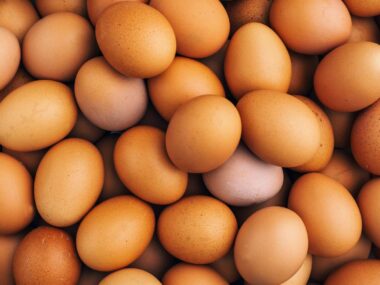Noodles, a beloved staple in cuisines around the globe, often receive mixed reviews regarding their nutritional value and health implications.
In this comprehensive analysis, we delve into the intricacies of noodles’ nutritional composition and their potential health benefits, shedding light on their role in a balanced diet and overall well-being.
Understanding Noodles

Noodles come in various shapes, sizes, and compositions, with ingredients ranging from wheat flour and rice flour to buckwheat and mung bean starch.
While noodles may differ significantly in their nutritional profiles depending on the ingredients and preparation methods, they generally serve as a significant source of carbohydrates, providing the body with energy for daily activities and metabolic functions.
Nutritional Composition of Noodles
The nutritional composition of noodles varies depending on factors such as ingredients, processing techniques, and serving sizes. However, here’s a general overview of the key nutrients found in noodles:
- Carbohydrates: Noodles are predominantly composed of carbohydrates, primarily in the form of starch. These complex carbohydrates provide a steady release of energy, aiding in satiety and maintaining blood sugar levels.
- Protein: While noodles are not typically considered a high-protein food, they do contribute some protein to the diet, especially if made from ingredients like wheat or buckwheat flour. Protein is essential for muscle repair and growth, as well as various metabolic functions.
- Dietary Fiber: The fibre content of noodles varies depending on the type and processing method. Whole grain or whole wheat noodles tend to be higher in fibre, which supports digestive health, promotes regular bowel movements, and may help lower cholesterol levels.
- Vitamins and Minerals: Depending on the ingredients used, noodles may contain varying amounts of vitamins and minerals. For example, wheat-based noodles provide essential nutrients such as iron, magnesium, and B vitamins, which are crucial for energy metabolism, red blood cell production, and nerve function.
Health Benefits of Noodles
Contrary to popular belief, noodles can offer several health benefits when consumed as part of a balanced diet. Here are some potential health benefits associated with noodles:
- Energy Source: Noodles serve as an excellent source of carbohydrates, providing a readily available energy source for the body. Consuming noodles before physical activity can help fuel muscles and improve performance.
- Satiety and Weight Management: The complex carbohydrates and fibre found in noodles promote feelings of fullness and satiety, which can aid in portion control and weight management. Including noodles in meals can help prevent overeating and reduce overall calorie intake.
- Heart Health: Some types of noodles, particularly those made from whole grains, may help support heart health. The fibre, vitamins, and minerals in whole grain noodles can help lower cholesterol levels, regulate blood pressure, and reduce the risk of heart disease.
- Digestive Health: Noodles that contain dietary fibre, such as whole grain or whole wheat varieties, support digestive health by promoting regular bowel movements and preventing constipation. Fibre also acts as a prebiotic, feeding beneficial bacteria in the gut and supporting gut health.
- Blood Sugar Control: Noodles with a lower glycemic index, such as whole grain varieties, can help regulate blood sugar levels and prevent spikes in insulin production. This is particularly beneficial for individuals with diabetes or those at risk of developing insulin resistance.
- Versatility and Nutrient Absorption: Noodles serve as a versatile base for incorporating other nutritious ingredients into meals, such as vegetables, lean proteins, and healthy fats. This allows for a well-balanced meal that provides essential nutrients and promotes optimal nutrient absorption.
- Cultural and Social Significance: Beyond their nutritional value, noodles hold cultural significance in many societies and are often associated with communal meals, family gatherings, and festive occasions. Enjoying noodles with loved ones can contribute to overall well-being and social connection.
Conclusion:
In conclusion, noodles can be a nutritious and versatile addition to a balanced diet when chosen wisely and consumed in moderation. While noodles primarily provide carbohydrates, they also offer essential nutrients such as protein, fibre, vitamins, and minerals.
When paired with nutrient-rich ingredients and prepared healthfully, noodles can contribute to satiety, energy production, digestive health, heart health, and overall well-being.
However, it’s essential to opt for whole grain or whole wheat varieties and balance noodle consumption with a variety of other nutritious foods to reap their full health benefits. With mindful choices and creative culinary approaches, noodles can be enjoyed as a wholesome and satisfying diet.










